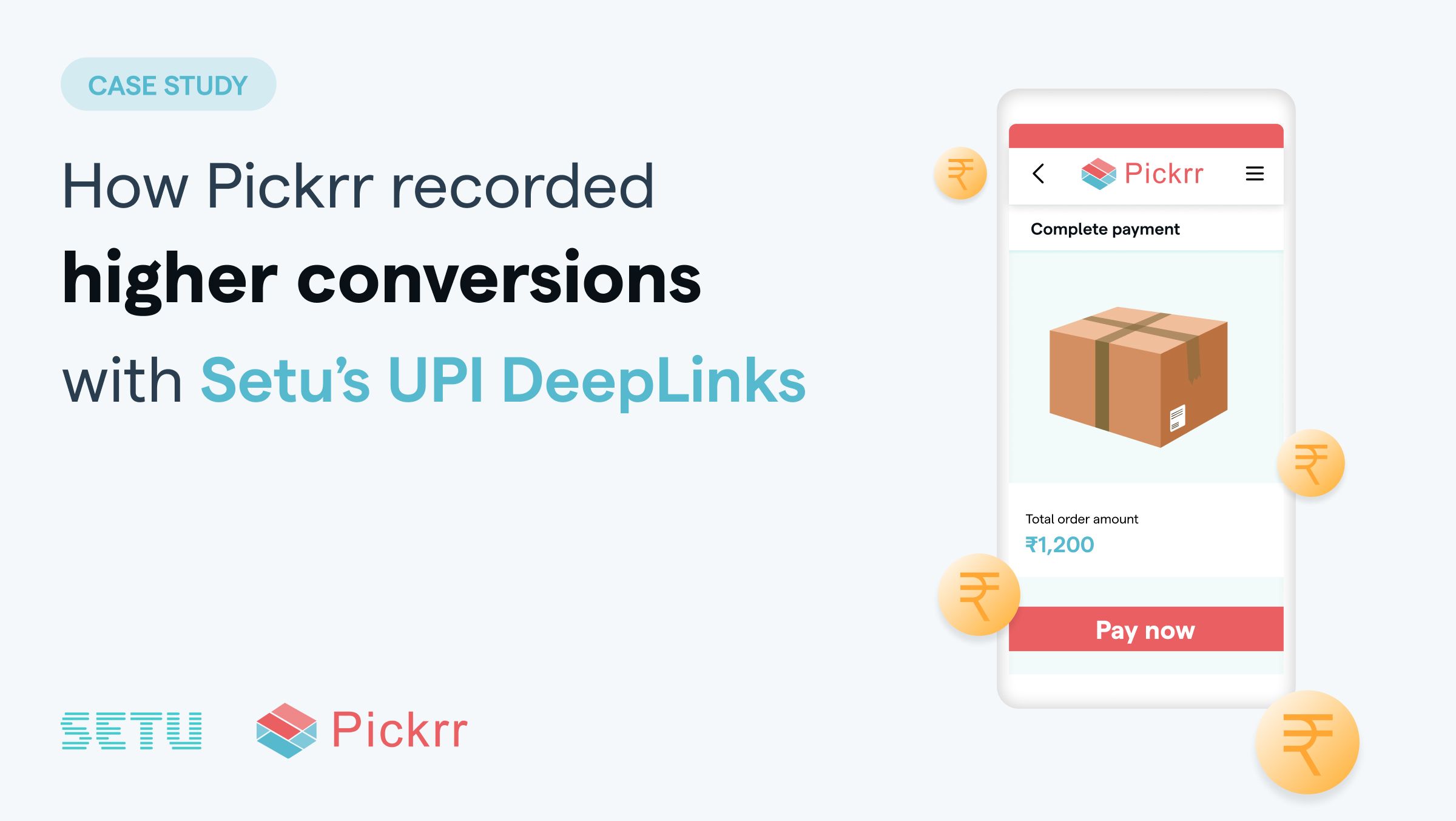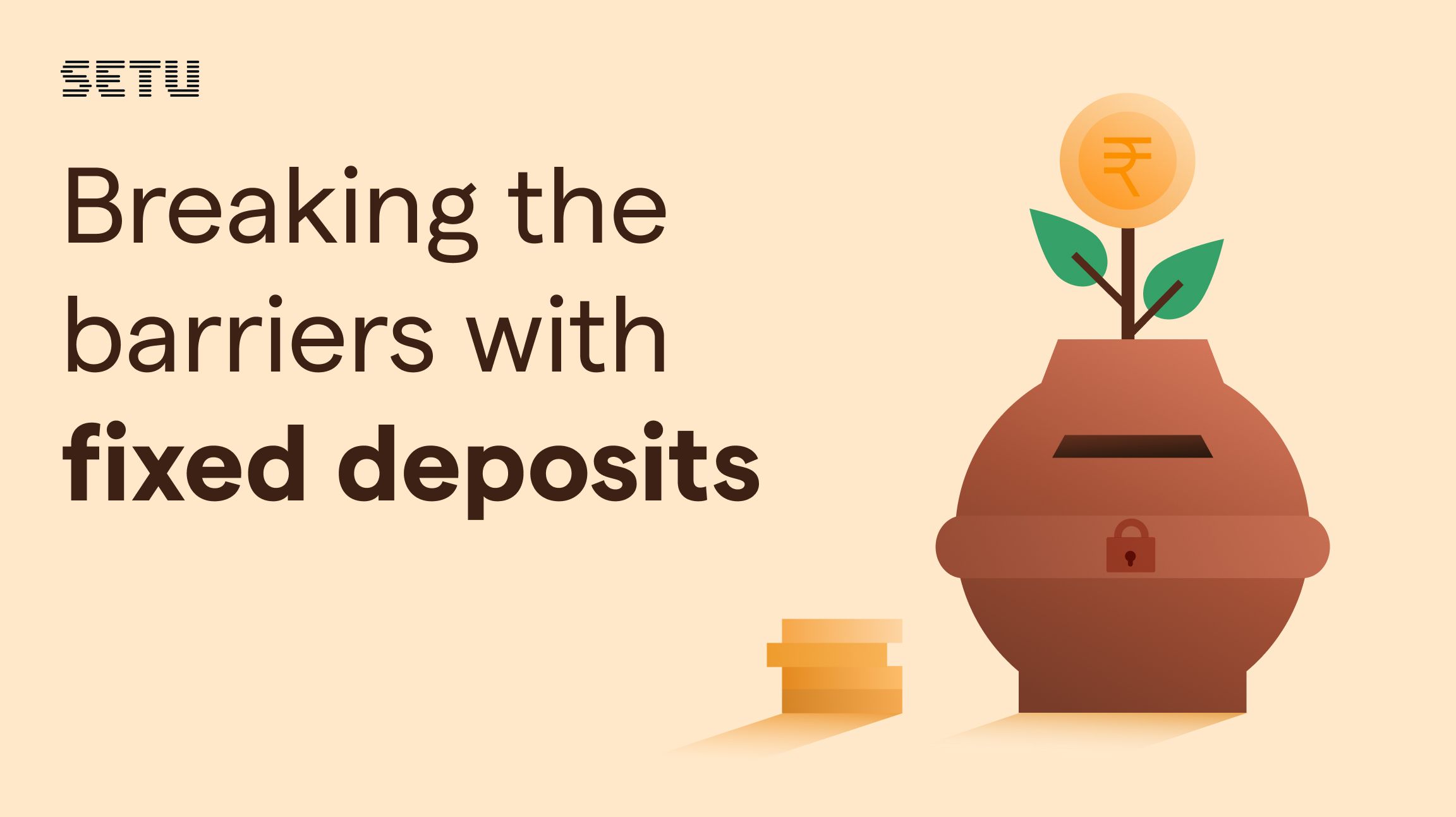All about the RBI's latest quarterly statement and what it could mean for digital payments players
6 Aug 2021 — LEGAL AND COMPLIANCE — MONEYRULES

Welcome to MoneyRules, a fortnightly newsletter from Setu written by Atulaa Krishnamurthy and Vinay Kesari. Financial services is arguably the most regulated sector of every economy, which means that fintech companies looking to move fast and break things are likely to find themselves on a quick collision course with a powerful regulator. Let’s face it - regulatory changes can (and often do) make or break fintech products overnight, which means keeping on top of these changes are critical to your business. We aim to alert you to these changes, provide context, and demystify where necessary.
This fortnight was dominated by the RBI's quarterly Statement on Developmental and Regulatory Policies, which contained exciting news for anyone interested in payments infrastructure and wallets.
NEFT & RTGS rails will be opened up to new categories of players#
The TL;DR: Being a regulated payments player just became more attractive, with Indian PPI and PA licensees potentially moving one step closer to operating like a UK E-money Institution or a Singapore Standard Payment Institution.
The longer story:
The National Electronic Fund Transfer (NEFT) and real-time gross settlement (RTGS) payment rails form the backbone of India's payments systems. Currently only banks can participate directly in these systems as members, barring a few exceptions such as clearing houses and stock exchanges. This means that all payments players, including payment gateways, aggregators, and PPI issuers, currently need to work with one or more sponsor banks (and integrate with their infrastructure) in order to actually move funds. Previous efforts by the Government to unbundle banking and payments have run into strong RBI opposition, with the central bank going so far as releasing a public dissent note in 2018 when an independent Payments Regulatory Board (PRB) was proposed. Banking and payments have remained inextricably coupled, with even pathbreaking digital payments systems such as UPI requiring fintechs to be intermediated by sponsor banks.
All of that could be set to change.#
While the RBI continues to be the payments regulator, its latest policy statement indicates that it will open up direct access to RTGS and NEFT to 'non-bank payment system operators (PSOs)'. Who are non-bank PSOs? They include issuers of Prepaid Payment Instruments (PPIs) such as PhonePe wallet or MobiKwik wallet; card networks such as Visa and MasterCard; and a few more obscure PSOs such as white label ATM operators and TReDS platforms. Significantly, this category of 'non-bank PSOs' could also include the soon-to-be-licensed payment aggregators (PAs), which will include some of India's largest digital payments companies and fintechs.
As a result of being either a PPI issuer or a PA, it's likely that at least a dozen major fintechs will become eligible to get direct access to RTGS and NEFT. This would allow them to innovate on payments products more quickly, by reducing their dependency on bank infrastructure to move funds.
Details are scarce at the moment - will these fintechs be eligible to open settlement accounts directly with the RBI? Will they need to contribute towards a settlement guarantee fund to protect against settlement risk? Will all non-bank PSOs get NEFT & RTGS access or will it be selective? Clarity on these and other points will emerge once the RBI releases more detailed guidance on the path forward and timelines.
PPIs get three new superpowers#
The TL;DR: Wallets just became a whole lot more interesting, with a bunch of regulatory changes that taken together should let them compete better with UPI and other popular payments systems.
The longer story:
PPIs have lost a lot of their sheen in the years since UPI has exploded. That could be set to change, with the RBI announcing three major changes which could suddenly make PPIs interesting again:
-
Mandatory interoperability: The RBI for over three years has nudged wallets towards becoming interoperable, with little success. While this is understandable given that a major part of a wallet's appeal for an issuer is customer stickiness, the RBI has doubled down on its approach by now making interoperability mandatory for full-KYC wallets. This means that you will eventually be able to directly transfer balance between, say, your PhonePe Wallet and your Amazon Pay Wallet.
-
Increased limit: The balance limit on full-KYC PPIs will go up from Rs. 1 lakh to Rs. 2 lakh, to 'incentivise the migration of PPIs to full-KYC'.
-
Cash withdrawal at ATMs: Currently only PPIs issued by banks can be used at ATMs to withdraw cash. The RBI has proposed opening this feature up to non-bank PPIs as well, which would level the playing field. In particular, this could help with popularising PPI-based services in smaller towns and rural areas with lower digital penetration, where ability to withdraw cash is an essential fallback.
Seen together with PPI issuers' ability to directly access NEFT and RTGS rails, these developments could clear the deck for PPIs to emerge from their years-long UPI-induced funk. It's important to also contextualise them within other major regulatory currents (including NUE), which point to a future where the RBI encourages multiple interoperable retail payments systems run by different operators. All in all, exciting times to be building payments products in India!
News and articles that caught our attention this past fortnight:#
NPCI CEO Dilip Asbe said in a Clubhouse session that 'reasonable MDR collected from the merchant is the best solution' to the lack of a revenue model for digital payments in India.
The iSpirt blog explores using global crypto-capital to bridge India's SME funding gap, while Balaji Srinivisan dives deep into how IndiaStack could add a crypto layer.
Upstox became the third fintech in recent times to suffer a significant data breach.
Medianama has a good roundup of comments from regulatory experts on the recent Juspay and MobiKwik data breaches.
In the US, SEC Commissioner Hester Peirce (that's not a typo!) issued a public statement proposing an updated 'token safe harbour' that would provide clarity to crypto developers and help them ensure they don't incidentally break US securities laws with their ICOs. This proposal has gone through multiple iterations, incorporating masses of feedback - who said building in public was something only startups do!
These are all our updates for the fortnight, folks! Both of us (Atulaa and Vinay) are on twitter, so feel free to DM us with feedback and topics to include in the next edition. If you liked this, please share it with people interested in Indian fintech regulation!





